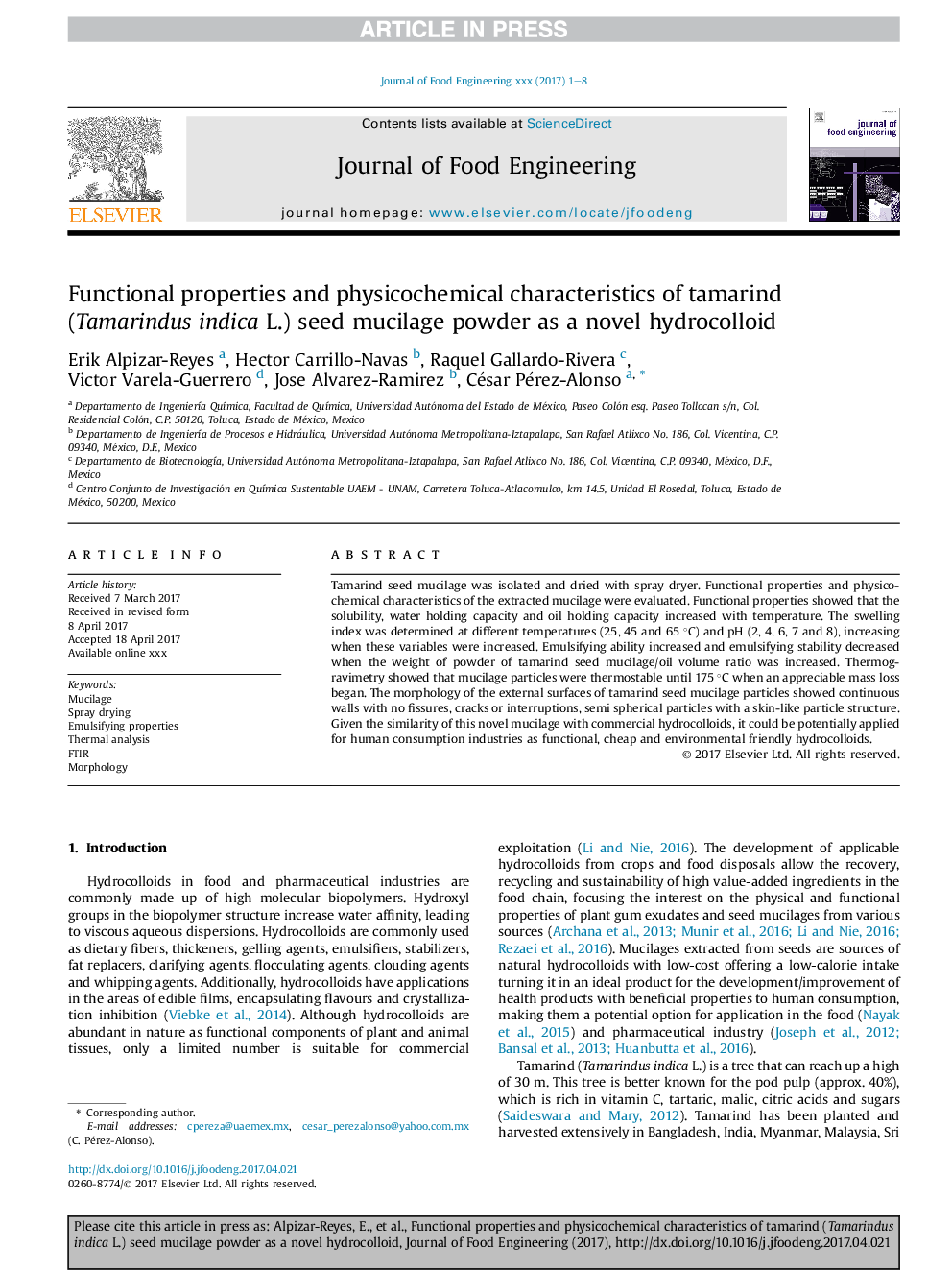| Article ID | Journal | Published Year | Pages | File Type |
|---|---|---|---|---|
| 4908978 | Journal of Food Engineering | 2017 | 8 Pages |
Abstract
Tamarind seed mucilage was isolated and dried with spray dryer. Functional properties and physicochemical characteristics of the extracted mucilage were evaluated. Functional properties showed that the solubility, water holding capacity and oil holding capacity increased with temperature. The swelling index was determined at different temperatures (25, 45 and 65 °C) and pH (2, 4, 6, 7 and 8), increasing when these variables were increased. Emulsifying ability increased and emulsifying stability decreased when the weight of powder of tamarind seed mucilage/oil volume ratio was increased. Thermogravimetry showed that mucilage particles were thermostable until 175 °C when an appreciable mass loss began. The morphology of the external surfaces of tamarind seed mucilage particles showed continuous walls with no fissures, cracks or interruptions, semi spherical particles with a skin-like particle structure. Given the similarity of this novel mucilage with commercial hydrocolloids, it could be potentially applied for human consumption industries as functional, cheap and environmental friendly hydrocolloids.
Related Topics
Physical Sciences and Engineering
Chemical Engineering
Chemical Engineering (General)
Authors
Erik Alpizar-Reyes, Hector Carrillo-Navas, Raquel Gallardo-Rivera, Victor Varela-Guerrero, Jose Alvarez-Ramirez, César Pérez-Alonso,
